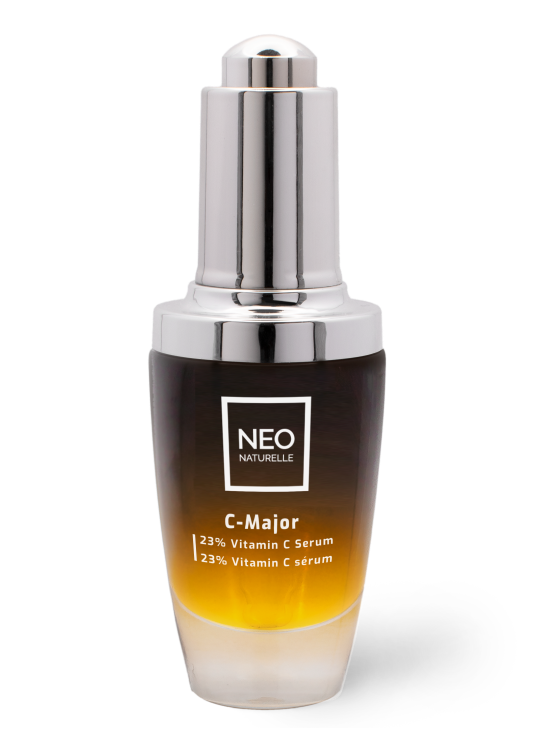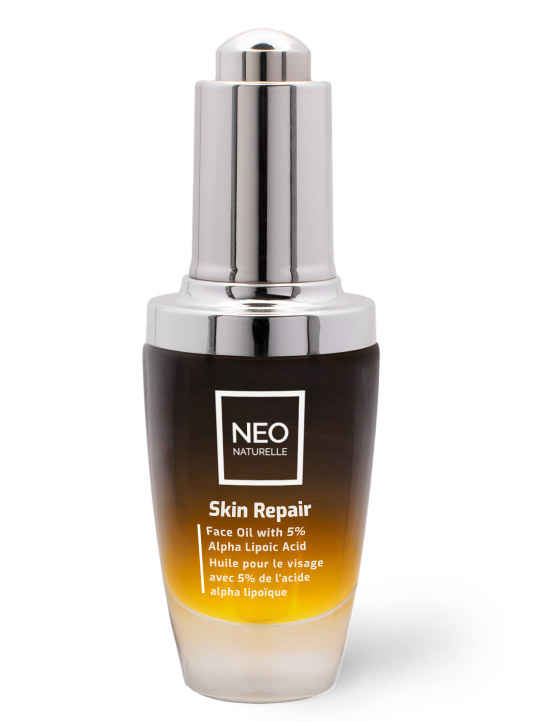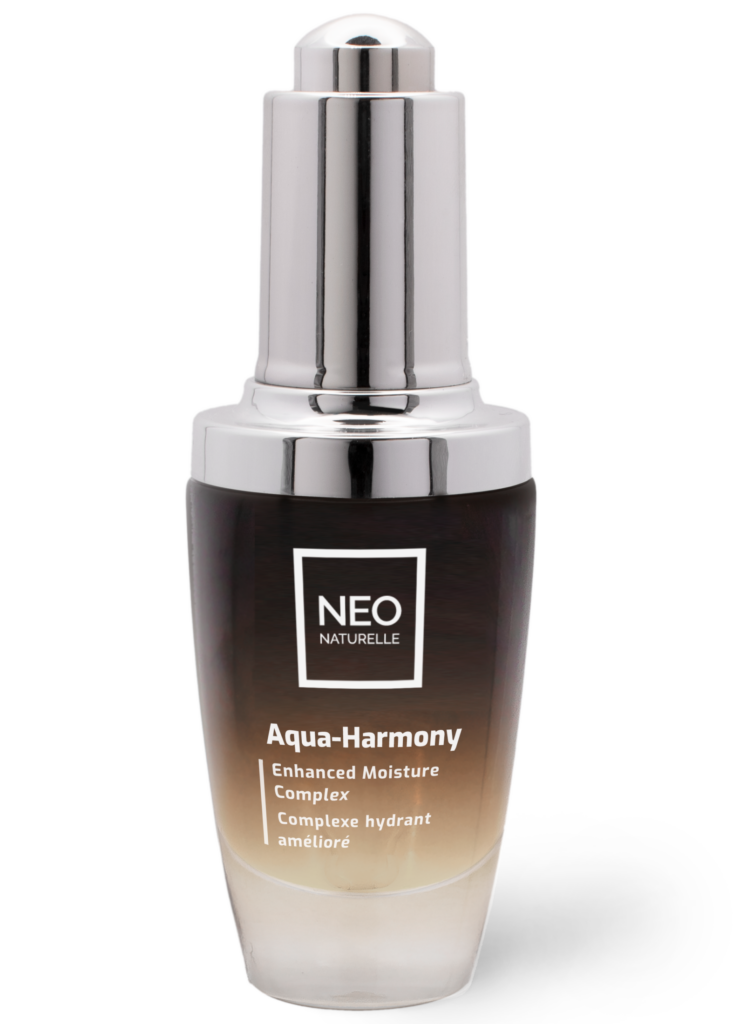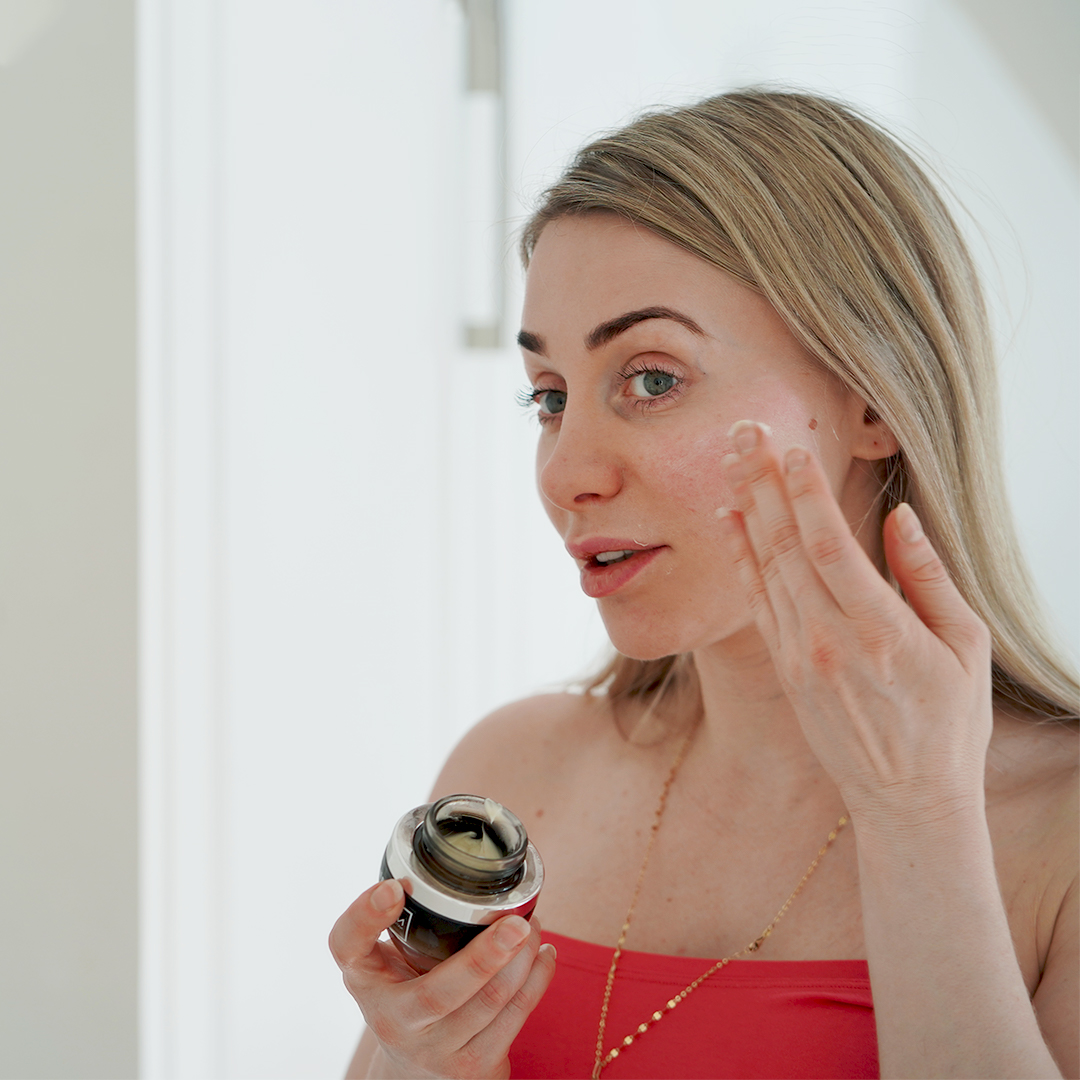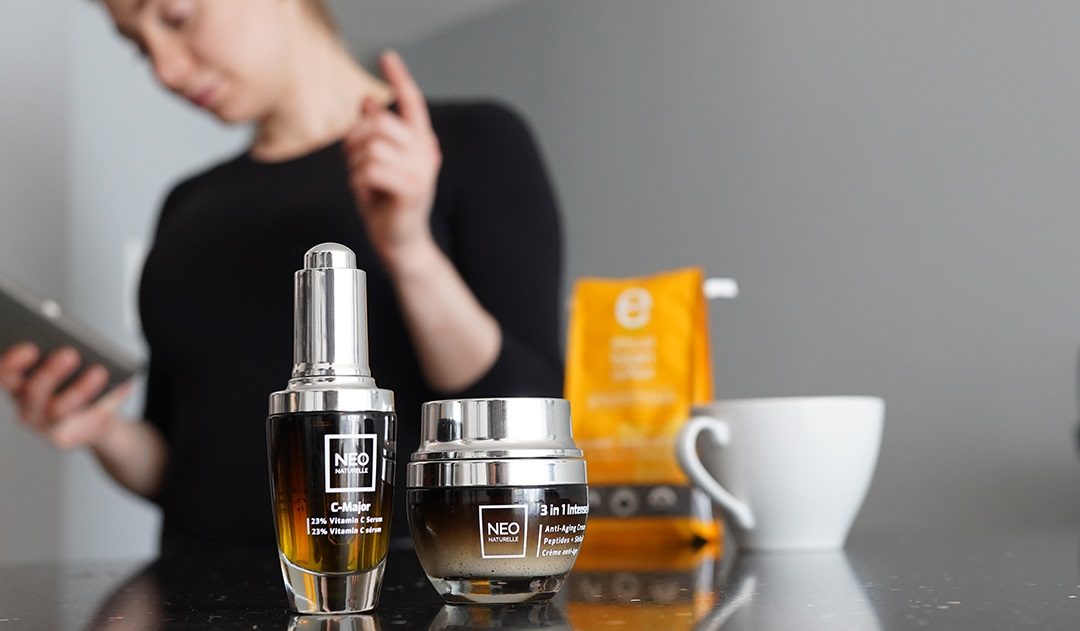Ah, menopause, that charming phase of life when your skin decides to play some unexpected tricks on you. Here’s a rundown of the surprises your skin might throw your way and how to deal with them (while keeping your sense of humor intact). Learn about your Menopause Skin: What to Expect When You’re Not Expecting Your Period.
Age Spots: A Result of Too Much Sun and Not Enough SPF
So, remember all those sunny days you enjoyed without sunscreen? Well, your skin hasn’t forgotten either. Now it’s paying you back with age spots in all the places you flaunted your sun-kissed glow – face, hands, neck, wherever! Embrace your newfound polka-dot aesthetic and slap on some SPF sunscreen. Think of it as insurance against future surprises.
Pro Tip 1: Add vitamin C serum to your skincare routine. It’s like sending your skin on a tropical vacation without the UV damage. Vitamin C naturally reverses sun damage, making existing spots lighter and preventing new ones from forming.
Pro Tip 2: Do not use chemical sunscreens; opt for physical blockers like titanium dioxide and zinc oxide SPF only. Chemical sunscreens may disrupt hormones, adding unnecessary imbalance to your body.
Bruising Easily: Because Who Needs Hulk When You’ve Got Plummeting Estrogen Levels?
As estrogen levels take a nosedive, your skin decides it wants to be thinner than a rice paper wrapper. Cue the mysterious bruises appearing out of nowhere.
Pro Tip 1: Try peptides and vitamin C to boost your skin’s resilience and collagen production. But remember, we’re talking about skincare, not superhero transformations.
Pro Tip 2: Take arnica and bromelain supplements to speed up healing and reduce the possibility of bruising.
Dry Skin Drama: When Your Skin Decides to Channel Its Inner Desert
Menopause creates a desert out of your skin. Thanks to lazy hormones, your skin’s moisture retention game weakens faster than a bad Wi-Fi signal. Say hello to parched skin and wave goodbye to sebum (skin oil) production.
Think about your dry skin in two folds: hydration and moisturizing. These are two different things.
Hydration – is adding water.
Moisturizing – is adding oil.
And you need both!
Moisture Magic: Hyaluronic acid, sea kelp extract, aloe vera – throw everything but the kitchen sink at your dry skin. Seriously, add hyaluronic acid, sodium PCA, urea, and a 72-hour moisture complex to take care of dehydrated skin. These are proven ingredients you can rely on in your skincare routine.
Moisturizing: Add oil-soluble serums or richer, creamier moisturizers to your routine.
Pro Tip 1: Apply moisturizer to the jawline; if the cream completely absorbs in three minutes, it’s too light. You need a creamier, richer option.
Pro Tip 2: Despite common belief, avoid using retinol as it can make your skin even drier and thinner. The side effects of retinol for menopausal women outweighs the benefits.
Exfoliation or microdermabrasion may help but be mindful not to overdo it. Try mild exfoliators such as scrubs once a week. At menopause, skin becomes thinner, and aggressive peels or abrasions may cause more harm than good.
Pimples and Acne: Because Your Skin Misses Its Teenage Years
Just when you thought acne was a distant memory from your teen years, menopause decides to hit you with a blast from the past. Welcome back, teenage acne. We didn’t miss you.
Pro Tip 1: Use salicylic acid or tea tree oil as a spot treatment, but don’t overdo it. Drying your skin can worsen acne. Your skin may be wiser, but it’s also drier than the Sahara. Use spot treatment as soon as you notice a pimple formation.
Facial Hair Fiasco: The Unwanted Souvenir of Hormonal Rollercoasters
Just when you thought you were done with acne, menopause decides to gift you a bouquet of facial hair.
As levels of female hormones fall, you may see unwanted hair under your chin, along your jawline, or above your lip.
Pro Tip 1: If your skin becomes too thin for waxing, opt for laser hair removal, or good old-fashioned plucking. Yes, we all do it. Just invest in a magnifying mirror.
Pro Tip 2 : A prescription hair-reduction cream, i would not recommend either. Eflornithine ( active ingredient) may cause Acne or burning, stinging, tingling, and redness of the skin.
If you opt for laser treatment, have a board-certified dermatologist perform it. The risk of side effects increases dramatically when the person lacks medical training and in-depth knowledge of the skin.
Jowls, Wrinkles, when Collagen Crisis Strikes
Menopause isn’t just about hot flashes and mood swings; it’s also about bidding adieu to collagen like it’s a distant relative you never really liked. Say hello to jowls, wrinkles, and other surprises that make you wonder if your skin’s gone rogue.
In menopause, skin quickly loses collagen. Studies show that women’s skin loses about 30% of its collagen during the first five years of menopause. After that, the decline is more gradual. Women lose about 2% of their collagen every year for the next 20 years.
As collagen diminishes, our skin loses its firmness and begins to sag. Jowls appear. Permanent lines run from the tip of the nose to the corners of the mouth. Wrinkles that used to appear only with a smile or frown become visible all the time.
Pro tip 1: Vitamin C, pentapeptides – they’re like the Avengers of skincare, fighting the good fight against sagging skin and wrinkles. They will not reverse time, but they improve the skin and slow down further collagen loss and wrinkle formation.
Pro tip 2: do not use retinol it is not designed to replenish collagen, its designed to resurface your skin. Also, collagen cream is not helpful either. Collagen molecules is way too big to penetrate your skin. Your better choice collagen boosters such as collagen supplements ( opt for marine collagen), and antioxidants such as Alpha Lipoic Acid .
Rashes and Irritated Skin: Because Menopause Decides to Throw a pH Party.
As if hot flashes weren’t enough, menopause decides to throw in some rashes and easily irritated skin for good measure. It’s like your skin’s rebelling against the patriarchy, one rash at a time.
Around 50, the pH level of our skin changes. With this change, skin becomes more sensitive, and women are more likely to develop rashes and easily irritated skin. If you have an existing skin condition, such as eczema or rosacea, this could worsen.
Pro Tip 1: Soothing Solution: warm chamomile tea compress, or ice cube made with camomile tea. apply to your skin to sooth it or try colloidal oatmeal mask.
Pro Tip 2: Minimize the number of products you use on your skin; sometimes less is more. Your skin may develop sensitivity to perfectly good ingredients; it’s just too much for your skin to handle. Choose a good moisturizer and stick to it until the havoc is gone. Slowly reintroduce other skincare products.
Wounds Heal at Sloth Speed: When Your Skin Decides to Take Its Sweet Time
Hormonal rollercoasters aren’t just for mood swings; they also affect your skin’s healing abilities. Say hello to wounds that take longer to disappear than your ex’s ghosting act.
Patience, Patience: Your skin will heal, eventually. Meanwhile, give your skin extra love.
Pro Tip 1: Try our 5 in 1 healing remedy as overnight treatment or opt for natural balms or ointments with the following ingredients: sea buckthorn oil, and vitamin E, to help regenerate your skin.
Embracing Menopausal Changes:
Menopause Skin: There will be other “pleasant changes” you notice over time.
But remember, menopause is just another chapter in the grand saga of life. Embrace the surprises, laugh at the absurdities, and keep reading our blogs for more information – because who knows what your skin’s got up its sleeve next?
We’re here to ensure your journey is comfortable and enjoyable.
Our goal isn’t to make you look younger; we’re dedicated to helping you look and feel your absolute best—YOUR BEST!
to learn more :
https://neonaturelle.com/why-us/
